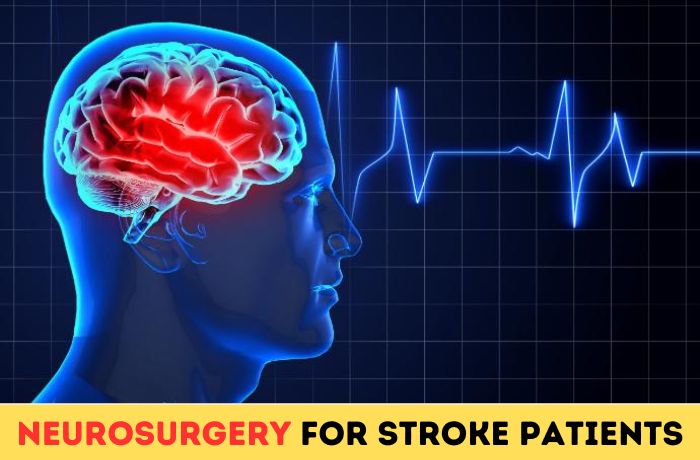Imagine waking up one morning to find yourself unable to move one side of your body, struggling to speak, or suddenly experiencing a severe headache. This nightmare is a reality for millions of stroke survivors around the world. But amid the fear and uncertainty, there is a bright side – neurosurgery. In this blog, we delve into the importance of neurosurgery for stroke patients, highlighting its significance and the role of stroke specialists in Pune in bringing relief and recovery.
Neurosurgery for stroke patients includes a variety of surgical procedures to manage and treat strokes, which occur when blood flow to a part of the brain is interrupted. Strokes can cause severe neurological deficits and, if not treated early, can lead to long-term disability or even death. Neurosurgical procedures play a major role in the acute treatment and long-term rehabilitation of stroke patients. Here’s a detailed overview of neurosurgery for stroke patients:
Types of Stroke:
- Ischemic stroke: This type of stroke develops when a blood clot blocks an artery supplying blood to the brain, leading to a lack of oxygen and nutrients to brain tissue.
- Hemorrhagic Stroke: Hemorrhagic strokes occur when a blood vessel in the brain ruptures, causing bleeding into the surrounding brain tissue.
Schedule an appointment with a stroke specialist.
Neurosurgical Procedures:
Thrombectomy:
Thrombectomy is a neurosurgical procedure used primarily for ischemic strokes caused by large blood clots blocking major brain arteries. During the procedure, a neurosurgeon or interventional neuroradiologist inserts a catheter through an artery in the groin and navigates it to the site of the clot in the brain. The clot is then mechanically removed or dissolved using special tools or medicines.
Craniotomy and Hematoma Drainage:
For hemorrhagic strokes, where bleeding in the brain forms a hematoma (blood clot), a neurosurgeon may perform a craniotomy to remove the clot and relieve pressure on the surrounding brain tissue. This involves making an opening in the skull to access the hematoma and drain the accumulated blood.
Cerebral Bypass Surgery:
Some ischemic strokes result from narrowed or blocked arteries in the brain. Cerebral bypass surgery involves rerouting blood flow around a blocked artery by creating a new pathway with a blood vessel graft. This helps restore blood flow to the affected area of the brain.
Stereotactic Radiosurgery:
Stereotactic radiosurgery, such as Gamma Knife or CyberKnife, uses highly focused beams of radiation to target and treat specific areas of the brain affected by stroke-related conditions, such as arteriovenous malformations (AVMs) or brain tumors that may predispose to stroke.
Benefits of Neurosurgery for Stroke
1. Improved blood flow: Procedures such as thrombectomy and carotid endarterectomy can restore blood flow to the brain, minimizing damage and improving recovery.
2. Reduced pressure: Hemicraniectomy reduces the pressure on the brain caused by bleeding, potentially preventing further damage and coma.
3. Prevent future strokes: Aneurysm clipping and carotid surgery treat the underlying cause of the stroke, reducing the risk of future strokes.
Must Read: Traumatic Brain Injury: Causes, Symptoms, And Treatment
Finding the Best Stroke Specialist in Pune
If you or a relative have suffered a stroke, it is important to seek immediate medical attention. A stroke specialist in Pune can assess your specific situation and determine whether neurosurgery is the best course of action. They will work with a team of neurologists, rehabilitation therapists, and other specialists to create a complete treatment plan for the best possible recovery.
Dr. Ninad Patil: A beacon of excellence in stroke treatment:
Among Pune’s renowned stroke specialists, Dr. Ninad Patil stands out as a beacon of excellence in stroke treatment. With a deep understanding of neurosurgical principles and a caring approach to patient care, Dr. Patil has helped countless individuals regain their lives after a stroke. His commitment to innovation and continuous learning ensures that his patients receive the most advanced and effective treatments available.
Conclusion:
In conclusion, neurosurgery plays a major role in the treatment of stroke, offering hope and healing to patients when they need it most. As we navigate the complexities of stroke care, the expertise of stroke specialists in Pune, like Dr. Ninad Patil,



